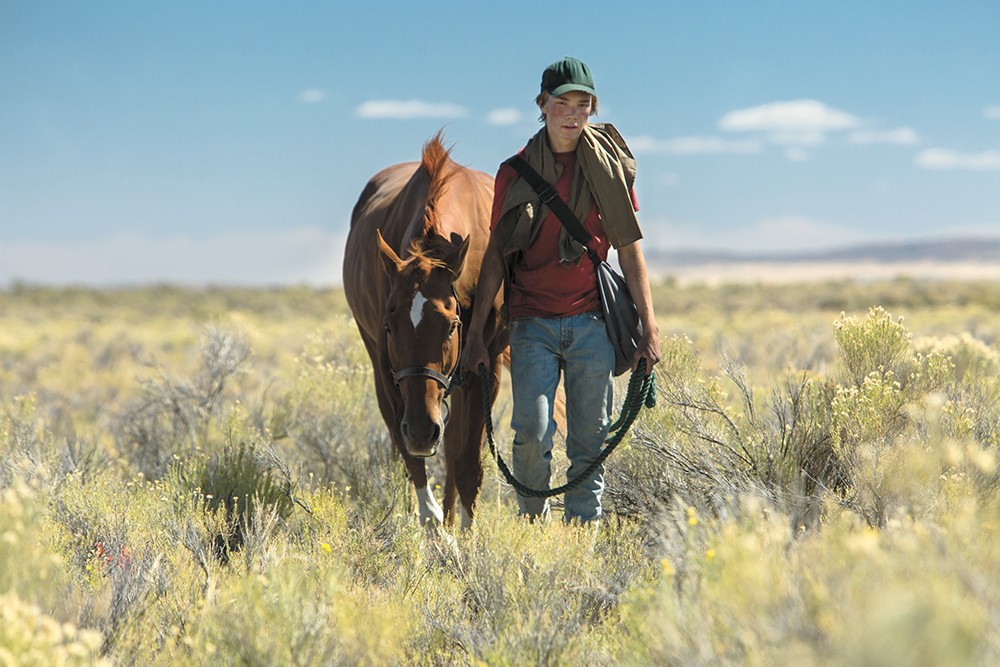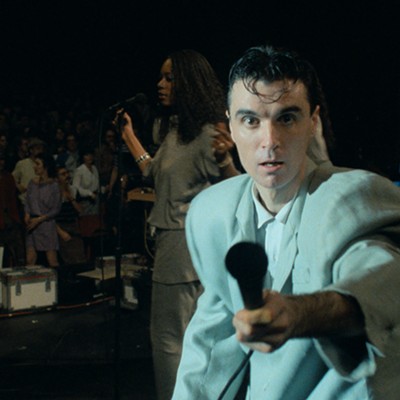The world of Lean on Pete is untethered from modern convenience and technology, its characters so removed from the way most of us live that they've essentially become physical extensions of their own environment. There's a moment near the end of the film when someone pulls out an iPhone, and it comes as a shock, because although the film is set in current day, it doesn't seem to be.
It is, then, a deliberately timeless story, and it's imbued with the same kind of sadness that guided the work of Steinbeck or Faulkner. It's also, like those authors' most famous fiction, a look at the often unforgiving nature of the American landscape, and of the young men who are lost within it and grasping for ballast.
Based on a novel by Willy Vlautin, Lean on Pete opens in Portland, but beyond the city limits we normally see on screen. It's a place of trailer parks and one-room houses, of people who have little and are barely scraping by. It's where a 15-year-old named Charley (Charlie Plummer, last seen as the rich, abducted teenager in Ridley Scott's All the Money in the World) has recently moved from Spokane with his single father (Travis Fimmel), who's going through a series of short-term girlfriends.
Charley doesn't talk much and doesn't seem to have any friends, but he's obviously attuned to his surroundings, his big, searching eyes always communicating great curiosity. Intrigued by a race track near his house, he wanders through the stables and meets a rancher named Del (Steve Buscemi), who buys horses on the cheap, runs them into the ground and resells them. Del agrees to let Charley help him out and tag along to a back country horse race in Wenatchee, where he wins only because he's doping his horses.
One of them is a skittish and timid steed called Lean on Pete, who captures Charley's attention. Perhaps he relates to the stoicism of the animals; maybe he sees himself in the plight of a large creature crammed into closed quarters. Del keeps saying that he'll probably end up sending Pete off to some place in Mexico, and although Charley doesn't know exactly what that place is, he is sure that Pete won't come back from it. After his father suffers an accident, Charley steals Del's truck and the horse trailer with Pete still in it and drives off to... well, where is he going exactly? There's talk of an aunt in Wyoming, but Charley doesn't know if she'll want him when he arrives, or if she even still lives there.
And when the truck eventually runs out of gas — and when siphoning fuel from other trucks is no longer an option — Charley gets out and walks through the deserts of the Pacific Northwest, Pete trailing behind him.
So it's a road movie, a tale of two runaways and a boy-and-his-horse story, and it seems like it might develop into a dreamy allegory not unlike 1979's classic The Black Stallion. But Lean on Pete reveals itself to be much darker and more harrowing than it initially appears, a growing stormfront that finally breaks in a single devastating moment.
The movie was written and directed by British filmmaker Andrew Haigh, whose previous features — Weekend (2011), about two gay men getting to know each other after a one-night stand, and 45 Years (2015), about a discovery that disturbs a long-married couple's tranquility — carried the weight of feelings left unspoken. Rather than give his characters pages of dialogue, Haigh prefers to let entire stories play out across their faces; it's a relief, then, that Plummer's central performance is so good and so expressive, a subtle and moving portrait of adolescent trauma.
Haigh is basically a tourist in the American West: He's fascinated by vast expanses painted by sunsets, highways stretching off into nothingness, crusty diners populated by half-asleep regulars. And yet he manages to capture it through the eyes of the farm workers, squatters, homeless teenagers and veterans who inhabit these places, and with it their sense of displacement and abandonment.
As much as the film is about the inexplicable bond between a kid and an animal, Lean on Pete is most potently a study of the brutality of life on the fringes, and of the physical and mental toll of isolation. It's an emotionally taxing movie, and if there is a glimmer of hope at the end, it takes some serious sacrifice to get there. We see people practicing empathy and kindness, but we see just as much craven and senseless behavior. Sometimes, Haigh seems to be arguing, it's the only way to survive.♦






















